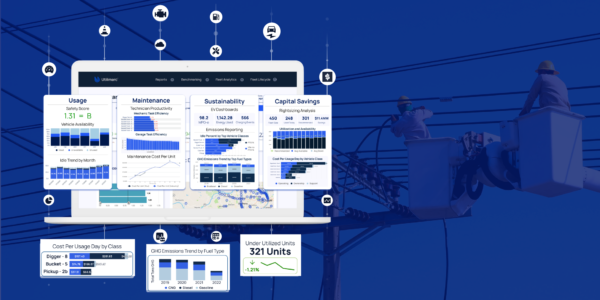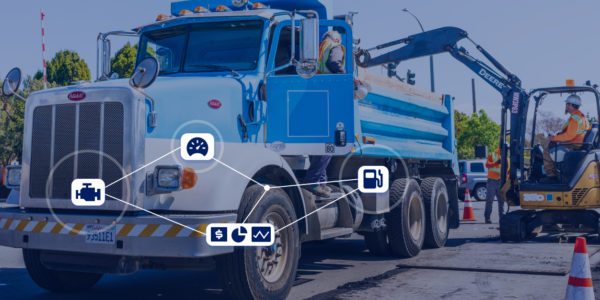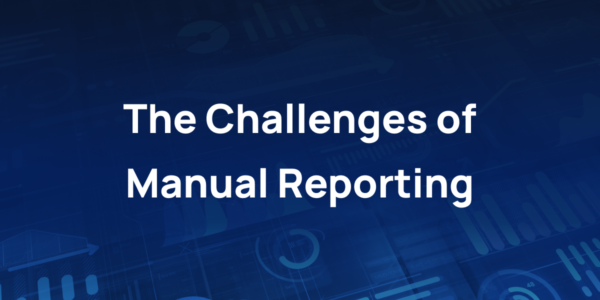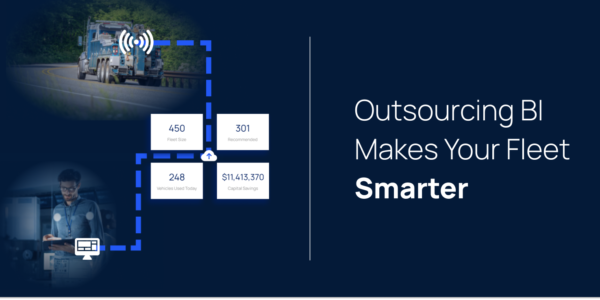Tag: Data Management

Fortunately for fleet managers today, BI is an easy-to-implement tool that converts data sources into new opportunities. Using these key insights, managers can cut out ineffective guesswork and instead, strategize with informed, data-backed decisions. In this article, we explore the top five reasons why every fleet striving for total optimization should be using Business Intelligence for their data analysis needs.

Telematics is an essential management tool for many commercial and government fleets. Whether your chosen solution comes factory-embedded from the manufacturer or is added in after acquisition, telematics helps managers to monitor and understand their fleet assets.

BI helps fleets to futureproof by creating a reliable and repeatable management strategy that is flexible to change. With the fleet industry changing so rapidly today, this helps managers look toward long-term success, focusing on cost-reduction opportunities and sustainable resource management.

Starting with reliable, high-quality data is the first step for successful reporting. This gives your organization a full view of what’s going on within, share reports with full confidence and make smarter, data-backed business decisions. To get to this point, however, data quality starts with unified data streams, error-free information and appropriate storage.

Sustainability is interwoven into futureproofing for many reasons. At its core, the idea and goal of sustainability is to carry out our actions and meet our needs without jeopardizing the ability of future generations doing the same. This is essentially the same goal as futureproofing, no?

High quality data can be tricky to recognize as valuable at first glance. It isn’t a tangible asset that goes out to job sites on a daily basis. It is, however, one of the most impactful tools a fleet manager can have when it comes to spotting opportunities and tracking progress toward goals.

There are two ways someone can gain the status of a true fleet data analyst. By spending years in the fleet industry garnering deep domain expertise, or by utilizing business intelligence as your secret weapon.

A data analyst with fleet cred is an invaluable addition to a fleet management team. “Fleet cred” is the deep domain knowledge of the world of fleet.

Manually reporting fleet data carries the implication of hidden costs that are aggregated throughout the reporting process. Inefficient, legacy systems can lead to wasted time, erroneous data and an unreliable dataset.

Managers spend over 70 percent of their time simply trying to consolidate their data into something comprehensible, leaving barely any time for drawing actionable insights from this data, in addition to carrying out all their other duties.

Business intelligence seems to be one of those buzzwords that companies throw around when talking strategy and futureproofing solutions, but many find it hard to actually define. Is it a system? A service? A strategic approach? In some ways, it is all of the above.

Working with data is Utilimarc’s bread and butter, the core of what we do here. We’ve been working with one of our partners, GEOTAB, to be able to “unlock” a certain type of data that historically has been harder to access.

Getting data where it needs to be continues to prove to be a challenge for many organizations today – especially when it comes to streamlining and effectively optimizing operational strategies.

This week, Utilimarc announced the signing on of new customer, Avista Corp. to their Business Intelligence Platform for fleets. Avista was interested in creating a business case as well as being able to scale for electric vehicle data, a key aspect was to focus on integrating all of their organization’s fleet data systems into a single analytical platform and to ensure accurate meter insights in order to create a more effective fleet management process.

This is a time for implementing and communicating new standards, and an opportunity to create some lasting changes. Perhaps you could consider right-sizing your fleet so that you can have spare vehicles as customers require while identifying and disposing of under-utilized equipment.

The Monthly Hotlist will air during the last week of every month, making sure you’re caught up on top stories, new technology launches and new initiatives that’ll surely have people talking.

Understanding your data is a crucial aspect to fleet management. It’s true when you’re growing your fleet, looking to expand, fine-tune your operations and nearly every facet of the management process. Fleet managers know that as their fleets get larger, the data they have grows exponentially – both in quantity and importance. But where does that leave them?

This week, we’re talking about how data application can affect your fleet management strategy. It’s more than just securing your data and looking at dashboards. Data application is not just one facet of your fleet management strategy, it’s all encompassing.